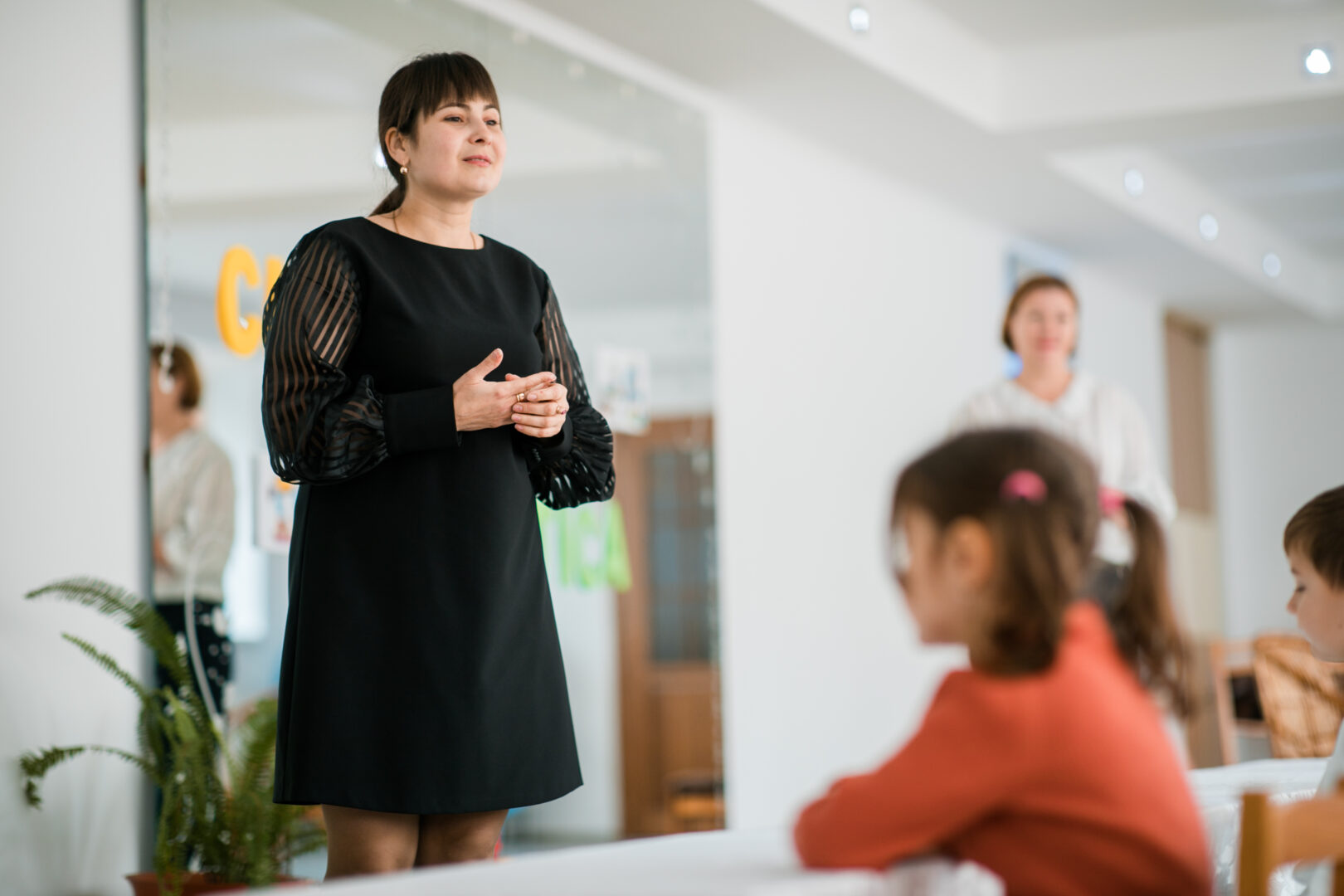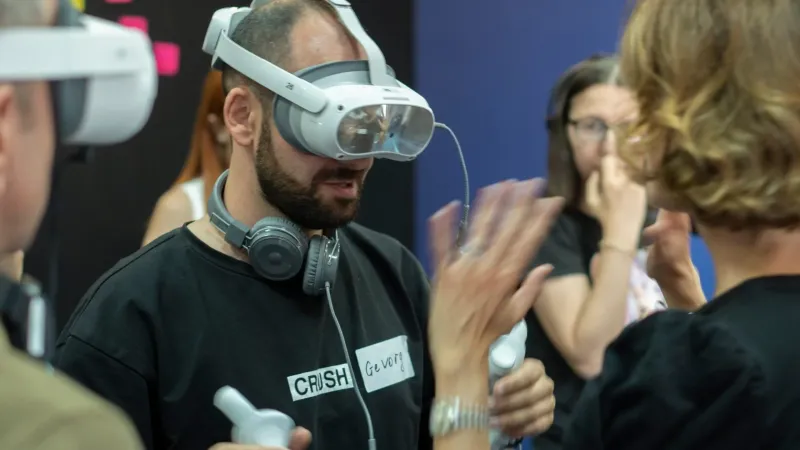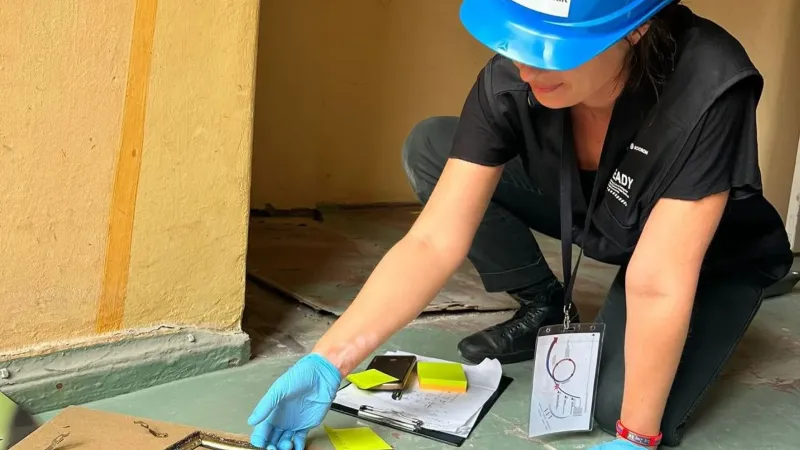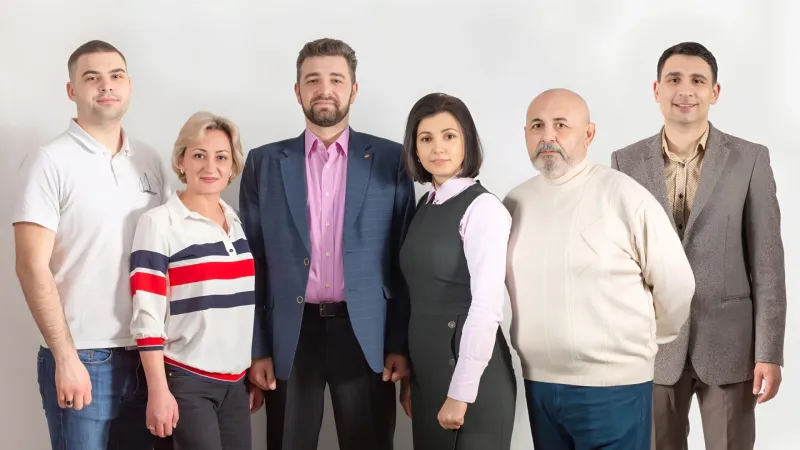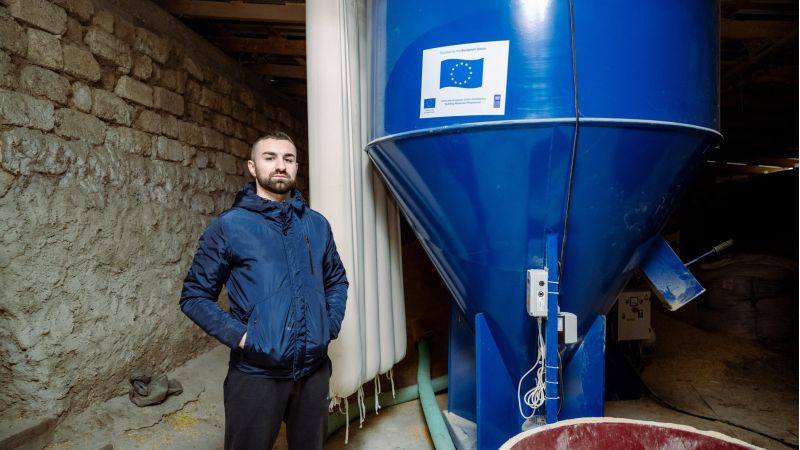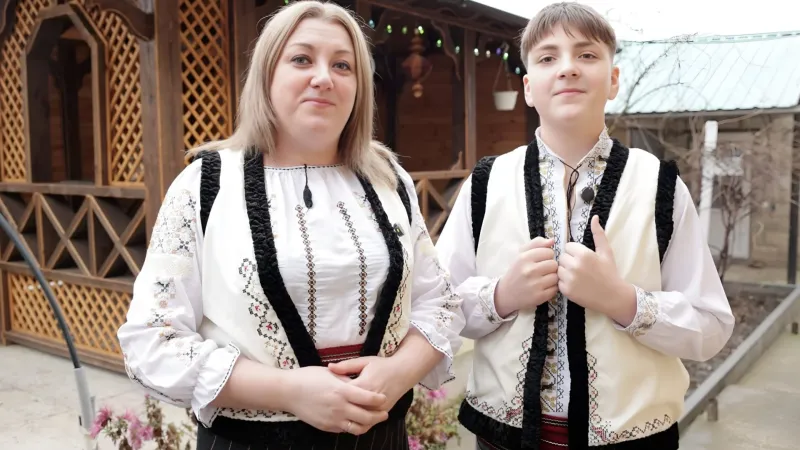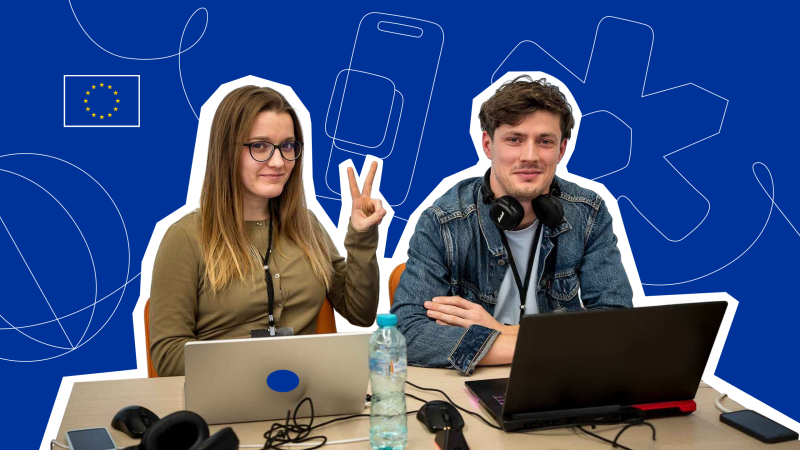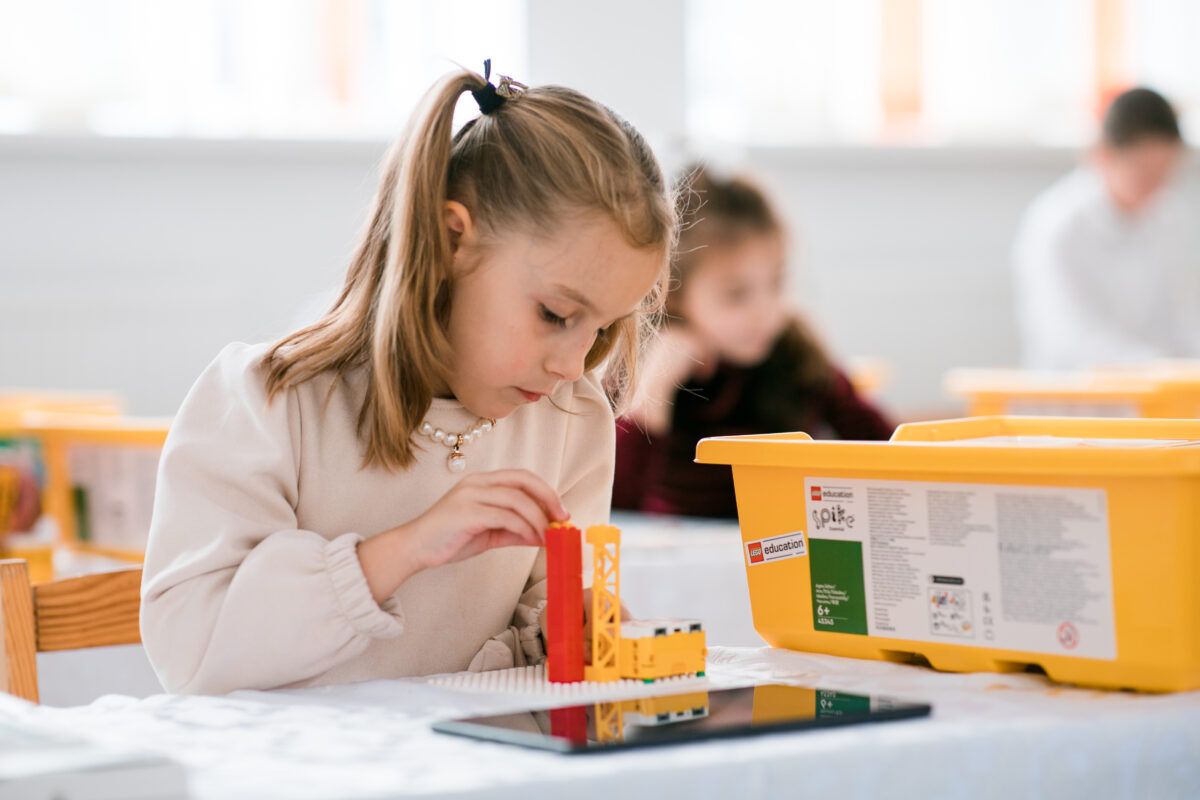
Copiii din grădinițele din municipiul Ungheni construiesc și programează roboți
Lecțiile de robotică, care sunt parte a educației digitale, au demarat în septembrie 2023 și au devenit rapid favoritele copiilor. Grădinița „Steluța” este una dintre cele șapte instituții preșcolare din municipiul Ungheni care a fost dotată cu planșete, seturi LEGO®, calculatoare, table interactive și proiectoare, astfel încât cei peste 2000 de copiii să-și dezvolte abilitățile și competențele digitale. Lecțiile de robotică, care sunt parte a educației digitale, au demarat în septembrie 2023 și au devenit rapid favoritele copiilor.
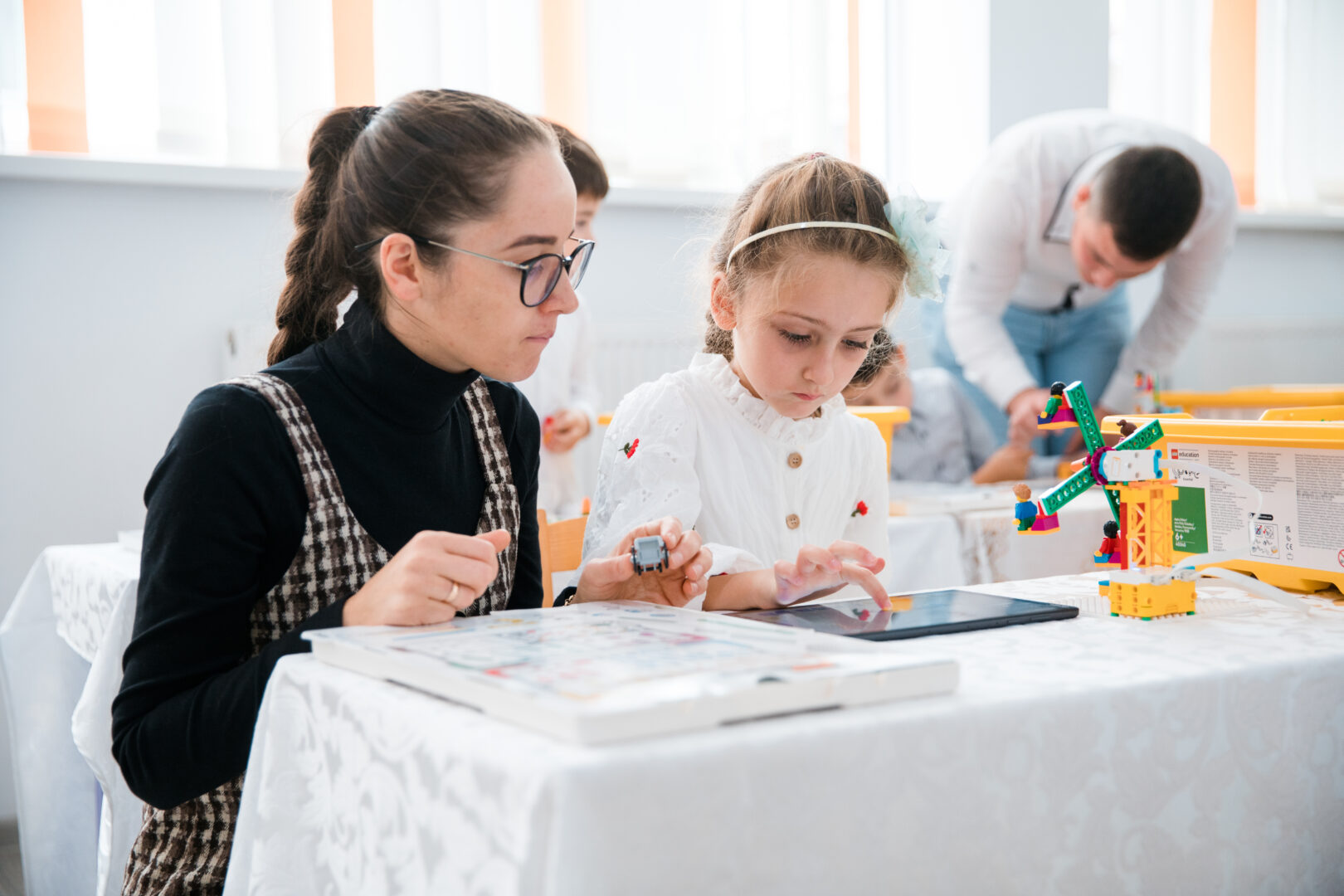
Caruselul și alte construcții
Așezați fiecare în banca sa, cu o planșetă și un set LEGO® Education SPIKE™ Essential în față, copiii din grupa pregătitoare a grădiniței „Steluța” din municipiul Ungheni încep lecția de robotică. Ghidați de trei educatori – formatori de robotică – o dată la două săptămânii, micuții își dau întâlnire în sala bine amenajată, ca să învețe să construiască și să programeze roboți.
„Roboții nu se construiesc doar, ei mai fac și alte operațiuni: se mișcă, luminează – aceasta îi impresionează mult pe copii și îi motivează să facă robotică”, explică Maxim Tișco, unul din formatorii de robotică.
Maxim Tișco, împreună cu alte două colege educatoare, îi supraveghează și îndrumă pe copii în programarea roboților.
„La început le captăm interesul, le creăm o poveste și le conferim o stare de bine, ca mai apoi să înceapă programarea propriu-zisă. Ne străduim să integrăm tematicile de la robotică cu tematicile pe care le studiază copiii la lecții, astfel încât să existe o continuitate”, notează Aliona Grușca, formatoare de robotică.
„Astăzi vom programa un carusel!”, îi anunță educătorii pe copiii gata pregătiți să înceapă asamblarea pieselor.
Caruselul este una dintre multiplele construcții pe care le pot face copiii cu seturile din dotare. Ei mai pot face elicoptere, feriboturi sau mașini.
„Ideile de construcții sunt foarte variate, iar programarea este una ușoară, chiar dacă la prima vedere poate părea complicat. La început i-am instruit pe copii și le-am format abilități pentru a putea folosi dispozitivele digitale: să conecteze tableta, să deschidă aplicația, să deconecteze tableta”, adaugă Aliona Grușca.
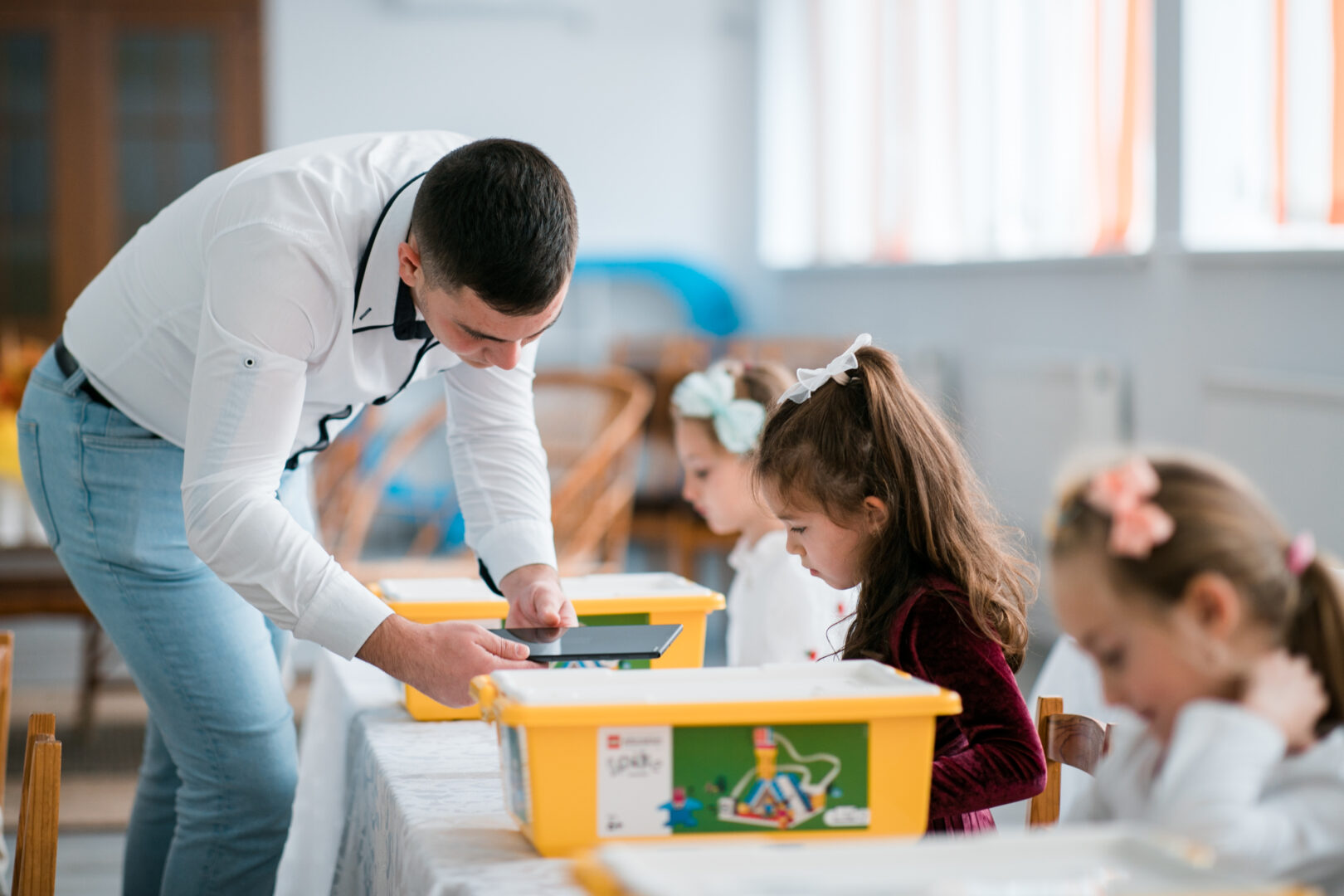
Educatorii devin formatori de robotică
Lecțiile de robotică în grădinițele din municipiul Ungheni au demarat și au fost precedate de mai multe instruiri a cadrelor didactice. Lucia Gavriliuc, directoarea grădiniței „Steluța” menționează că trei angajați ai instituției pe care o conduce au fost instruiți pentru a desfășura lecțiile de robotică în grupele pregătitoare.
„Suntem conștienți că robotica este un domeniu care le poate oferi copiilor un viitor strălucit.
Cu cât mai repede copiii încep să exerseze, cu atât mai interesant le este, deoarece folosim metode adaptate vârstei. Încurajăm creativitatea și sprijinim dezvoltarea abilităților de a crea jocuri, de a construi roboței, de a ști cum să folosească internetul și calculatorul în activitatea de zi cu zi”, subliniază Lucia Gavriliuc.
În lunile mai-iunie și septembrie anul trecut, 19 cadre didactice din cele șapte grădinițe din municipiul Ungheni au participat la un program de instruire de robotică, organizate cu suportul UNICEF. În cadrul sesiunilor de instruire, participanții au descoperit mai multe jocuri interactive pentru planșete și au învățat cum să utilizeze seturile LEGO®.
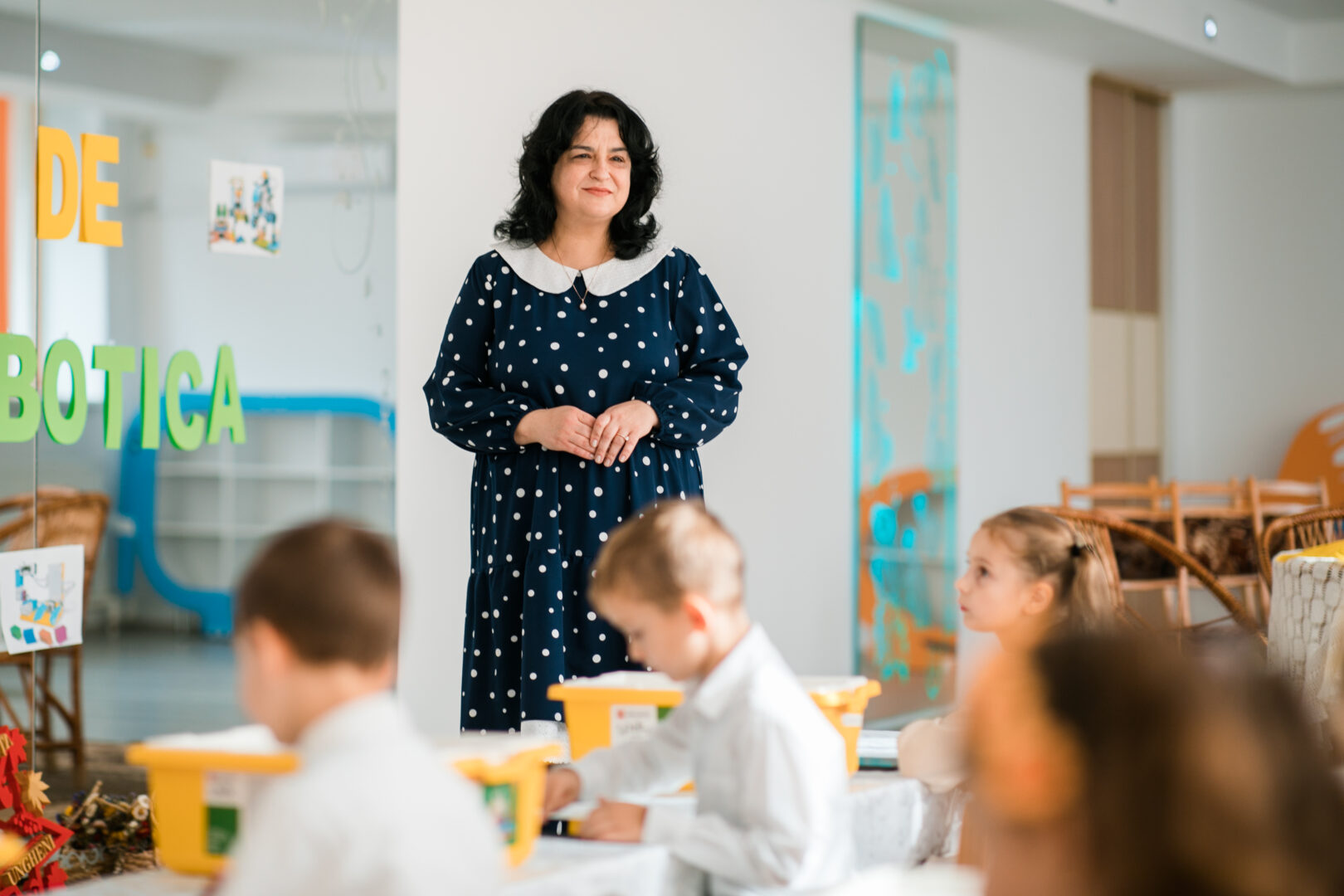
Robotica stimulează creativitatea și dezvoltă motricitatea fină
Ana Melnic are doi copii, iar fiica ei de șase ani, Alexandra, frecventează lecțiile de robotică.
„Inițial eram sceptică și nu credeam că vor fi asemenea lecții”, povestește Ana. Totuși, în doar câteva luni de când au început lecțiile, Ana observă schimbări pozitive de comportament și dezvoltare.
„Alexandra a devenit mult mai atentă, curioasă, s-a deprins să învețe prin joc. Lego a devenit jucăria ei preferată chiar și acasă”. Irina Cojocaru este formatoare de robotică la grădinița „Steluța” și mama Victoriei, fiica ei, frecventând la fel orele de robotică. „Ca părinte pot să zic că robotica le place foarte mult copiilor. Fiica mea este încântată, ea numără zilele și mă întreabă când vor fi următoarele lecții de robotică, îmi povestește acasă ce și cum a construit”, menționează Irina Cojocaru.
Dacă anterior, copiii erau obișnuiți cu robotica tradițională, de gen LEGO®, pe care le făceau acasă, fără motorașe și care nu se programează, în doar câteva luni ei au însușit aspecte elementare de robotică și au dobândit mai multe competențe.
„Aceste lecții le dezvoltă copiilor creativitatea și motricitatea fină, pentru că în setul LEGO® sunt piese foarte mici, care le antrenează atenția și memoria, întrucât la final roboțelul va fi demontat”, notează Maxim Tișco.
De asemenea, educatorii mai observă că robotica îi responsabilizează pe copii, îi face mai perseverenți, atenți și le cultivă dorința de a lucra în grup.
În 2022-2023, Programul „EU4Moldova: Regiuni-cheie”, finanțat de UE și implementat de PNUD și UNICEF a dotat grădinițele din municipiile Ungheni și Cahul cu table interactive, proiectoare, calculatoare, imprimante color, tablete și seturi LEGO® Education SPIKE™ Essential în valoare de peste 146.000 euro.
